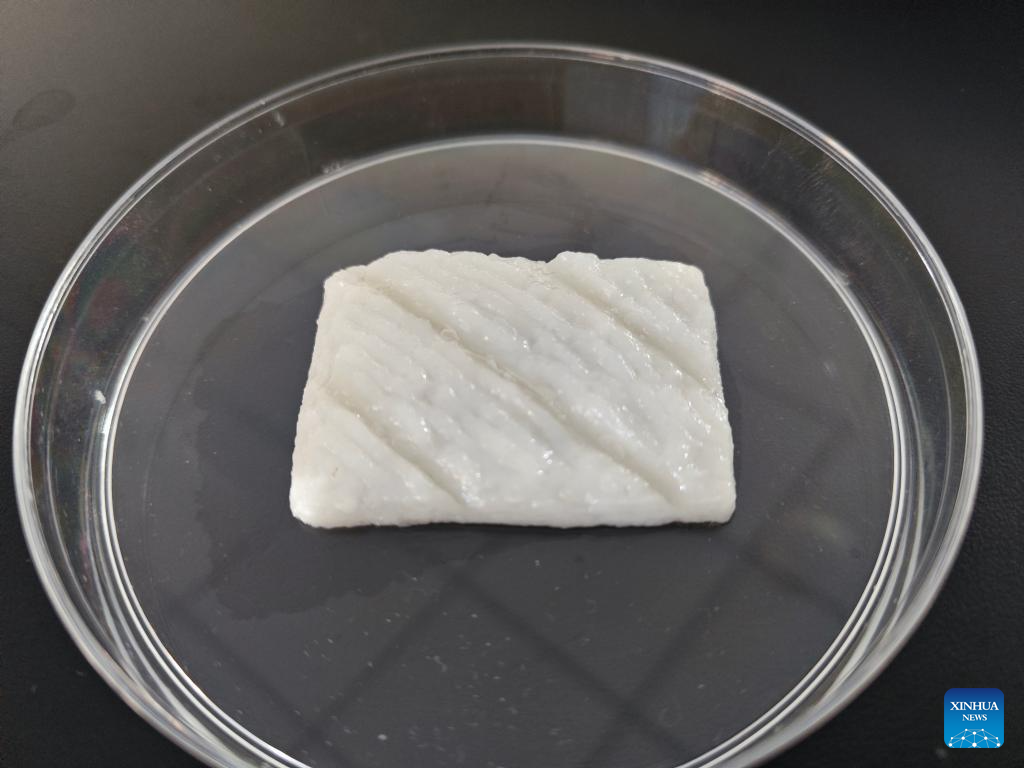
This photo taken on May 15, 2023 shows a tissue-like cultured fish fillet at the laboratory of Zhejiang University in Hangzhou, east China's Zhejiang Province. (Zhejiang University/Handout via Xinhua)
HANGZHOU, May 22 (Xinhua) -- Seafood is favored by many people for its taste and its richness in various proteins, omega-3 fatty acids and micronutrients. However, the increasing human population, coupled with environmental stress and climate change, has led to the overexploitation of marine food resources in recent decades.
In response to this challenge, a team of Chinese researchers has been seeking to develop tissue-like cultured fish fillets for human consumption, combining fish muscle fibers and adipocytes with 3D-printed gel.
The scientists from Zhejiang University and Dalian Polytechnic University published their findings recently in the journal npj Science of Food.
They first isolated muscle stem cells and adipose stem cells from the large yellow croaker, a warm-temperate migratory fish known for its delicious flavor and richness in nutrients.
They then promoted the myogenic differentiation of piscine satellite cells (PSCs) by regulating two related signaling pathways.
In addition, a 3D scaffold, the supporting materials for fish cell adhesion and growth, was constructed by gelatin-based gel mixed with PSCs. After proliferation and differentiation, the muscle scaffold was filled with cultured fish adipocytes until the tissue-like fish fillets were formed.
In essence, the cell culture of fish is a process of cell proliferation and differentiation in vitro through animal stem cells, explained the research team.
The process of producing the fillets took 17 days. No obvious differences were noted between the cultured meats and native muscle tissues in terms of the proportions of muscle cells and fat cells, gumminess, resilience or springiness.
However, plenty of safety assessments are needed before the cell-cultured fish can be served to humans, according to the research team.
"The research offers potential possibilities for the future supply of meat and animal protein, and has important implications for the conservation of marine fish stocks," said Liu Donghong, a member of the research team. ■



